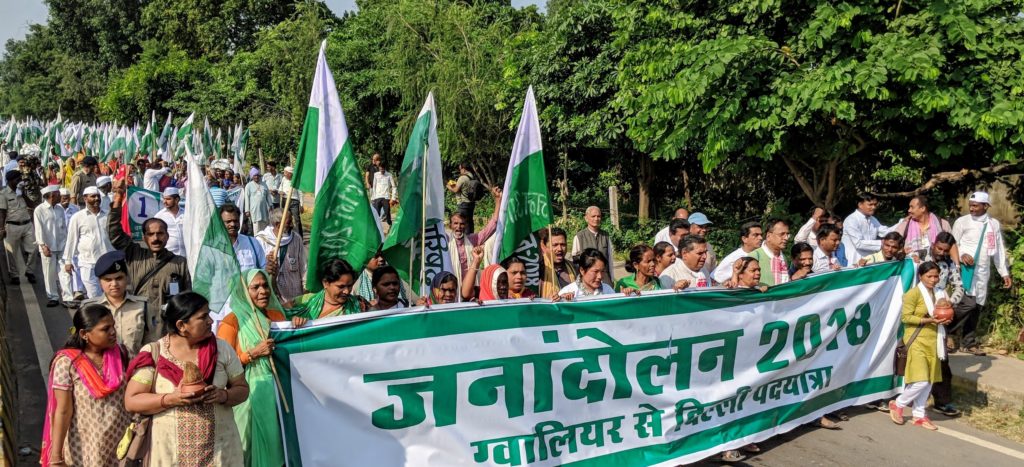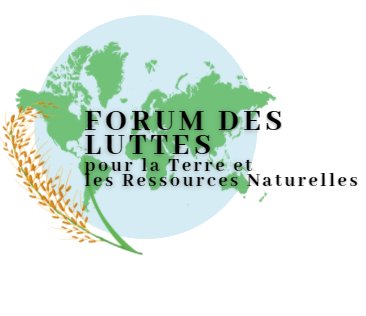Main co-organiser : Ekta Parishad
The next Theme 1 webinar will take place on 29 July at 14:30 GMT/UTC on zoom at this address: https: //us02web.zoom.us/j/83728881626 You can also find the full schedule of the next three weeks of discussions at the bottom of this page. You can also take part in the online discussions by following this link.
To be kept informed of upcoming events through the forum newsletter and to participate in the discussions, please register by following the link on the right.
Presentation of the theme
Global poverty is largely a rural phenomenon. Of the 1.2 billion people in our world living in extreme poverty—earning less than US $1 per day— approximately three-quarters live in rural areas. The great majority of these poor families rely on agriculture for their sustenance and well-being. For these families, land plays a dominant role in their economic and social lives, and their relationship to the land largely defines their access to opportunity, income, economic and nutritional security, and status within the community.
Women are particularly affected and constitute the majority of the landless. On the one hand they are the first to be affected by the loss of family land, on the other hand they are often disenfranchised by patriarchal inheritance systems that do not recognise women's right to land.

Improving and securing the rights of the rural poor to land and natural resources, especially those of landless and agricultural workers, both men and women, therefore remains a crucial issue of our time.
In recent times, there has been a trend towards the transformation of peasants into landless agricultural workers. This results in massive displacement, land grabbing, indebtedness, high operational costs and environmental degradation.
Access to the Commons of land, pastures and forests, on which the very existence of nomadic, pastoral and peasant communities depends, is increasingly limited and sometimes even blocked. Phenomena such as "green grabbing", the land grabbing byagribusiness and agro-forestry conglomerates, mean that the Commons traditionally managed by local communities are disappearing. This leads to the loss of their way of life for these communities. The survival of entire populations, especially ethnic minorities in India and South-East Asia, and pastoralists in Sahelian Africa, depends on the Commons. Even in the so-called "developed" regions of the world, such as Europe, transhumance practices exist and are under threat.

The first thematic discussion of the Struggles for Land and Natural Resources Forum aims to explore the multiple reasons why land-dependent communities are among the most vulnerable and marginalised groups in society. It will examine the cross-cutting impacts of land disenfranchisement, such as increased poverty and inequality and environmental consequences. We will discuss how landlessness has implications far beyond the local level and affects the whole society, including the urban sphere. We will also focus on institutional and governance solutions that have been proposed in the recent past to address land rights issues, such as the United Nations Declaration on the Rights of Peasants and Other Rural People (UNDROP).
The discussion will be introduced by speakers from different regions of the world involved in multilateral discussions on land rights, activists from South America, South Asia and Africa with direct experience of practical actions and ways to improve this situation. The Land Struggles Forum will map this out and attempt to propose roadmaps for future mobilisation and solidarity on land rights, land governance and land reform.
Ekta Parishad is a mass-based peoples' movement for land rights with an active membership of 250,000 landless people and is regarded as one of the biggest people’s movement in India with an iconic status globally. Ekta Parishad is known for several milestone successes including securing land rights to nearly 500,000 families, creating grassroots leadership of more than 10,000 people, protecting forest and water bodies, and framing several laws and policies related to the land reforms in India. Ekta Parishad is famous for the scale of its social mobilisations, with its latest mobilisation in 2018 drawing 25000 landless people from all over India.
The discussion on theme 1 will include an online forum and several webinars. The first webinar took place on 24 June at 13:00 GMT and the next will be on 15 July at 15:00 GMT.
We invite you to register for the online forum by clicking on the button below. Participants will automatically receive links to future webinars. Registration to the online forum will also allow you to share your thoughts, comments and suggestions in different formats (video, voice message, text message). The exchanges will be translated into at least 3 languages (English, French, Spanish).
Theme 1: Timeline
- 1st Thematic Webinar (launch webinar) - 24 June
- First online discussion period - 24-15 July
- 2nd Thematic Webinar - 15 July
- Second online discussion period - from 15 July
- Thematic Closing Webinar - 29 July
- Summary documents sent to presenters and participants - End of July
- General closing webinar of the Struggle Forum: collective approval of synthesis documents: end 2021 / beginning 2022
